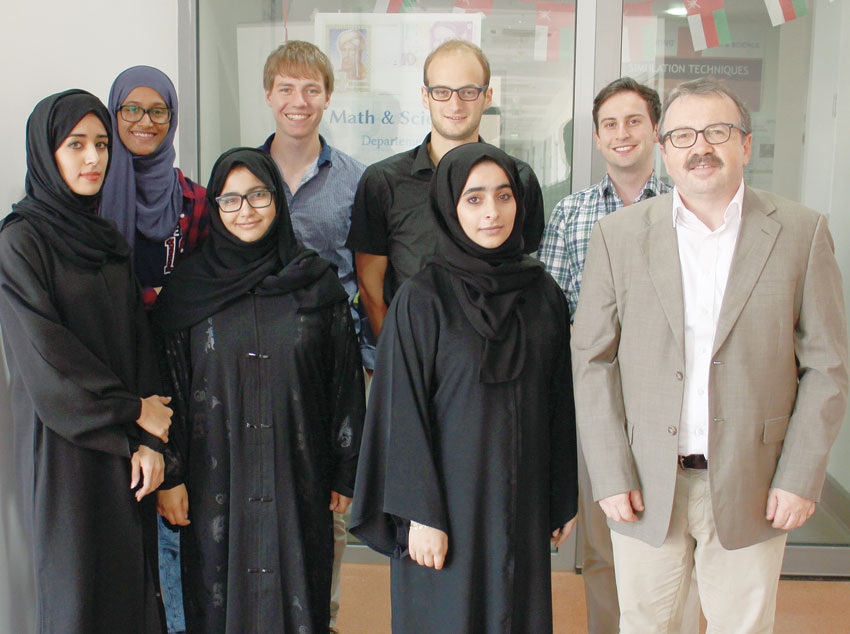

MUSCAT: Kaizen is an innovative, student-focused learning technique adopted by the Department of Mathematics and Sciences (MAS) at GUtech. Prof Dr Bernhard Heim, Head of the MAS Department and Dean of the Faculty of Science, recently published along with colleagues from GUtech and RWTH Aachen Germany a paper entitled ‘Driving student-centred calculus: Results of a comprehensive case study for Kaizen learning in the Sultanate of Oman’. The Kaizen method can be applied in large mathematics lectures for engineering, geosciences and computer sciences students. Prof Bernhard is the recipient of the GUtech Ibn al Haytham Teaching Award 2016.
“Kaizen is a teaching philosophy that is based on short learning units with many feedback loops and continuous testing of the students’ knowledge,” said Prof Bernhard who has been teaching at GUtech since 2009.
“We introduced the teaching method around two years ago and we were glad to receive overwhelmingly positive feedback from our Omani and international students. As a result, the attendance in class has increased to more than 85 per cent since the induction of Kaizen at GUtech,” he said while adding that classical forms of memorising and teaching in front of the students are not applicable anymore.
“Nowadays students expect the use of multimedia tools, which is a big advantage to enhance the students’ self-motivation and self-studies. To overcome the usually used memorising techniques in our engineering classes where we teach mathematics for engineering the student needs a progression from pure calculus to mathematics, which requires analytical and geometrical skills,” said Prof Bernhard.
To reach high success rates, the Kaizen technique focuses on the continuous human-human interaction between professor and student as well as between assistants and students.
Moreover, clearly communicated expectations, avoidance of a short-term learning attitude, a strict no-calculator policy and a balanced combination of traditional teaching and e-learning techniques, through mobile applications or advanced tailored e-learning management software.
The e-learning software provides weekly exercises for students. In addition, the students have continuous support by GUtech academic staff who act as mentors and help understand the various assignments.
“Such a sustainable learning process through Kaizen guarantees that students are well prepared for their final exams,” said Prof Bernhard.
Moreover, the strict “no calculator policy” in the classroom ensures that students realise that mathematics is about structures, to obtain a result pattern.
Oman Observer is now on the WhatsApp channel. Click here



